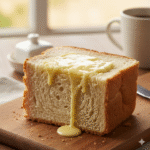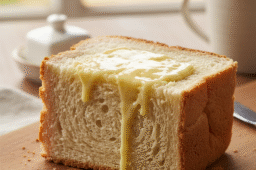
Smart Kitchen Tips to Reduce Waste at Home
- July 07, 2025
- by
- Khyra
“Waste isn’t just what’s thrown away—it’s what we fail to reinvent.”
Isn’t Kitchen Waste Just About Food Leftovers?
That’s a common misconception. In reality, kitchen waste extends far beyond leftover soup or spoiled tomatoes. Discarded packaging, plastic containers, broken utensils, old tins—these all add up. But here’s the kicker: most of them are reusable.
Scientific rationale: The Journal of Cleaner Production notes that repurposing everyday items significantly reduces environmental stress and lowers household carbon footprints by up to 40%. By creatively reusing items, we contribute not only to waste reduction but also to financial savings and healthier lifestyles—less clutter, more function.
Why Does Reusing Kitchen Items Matter for Your Health?
It may seem unrelated, but cluttered, waste-prone kitchens contribute to stress, poor hygiene, and even food contamination. Reducing single-use items means fewer chemicals, less plastic exposure, and improved mental wellbeing through minimalism.
Research published in Environmental Health Perspectives links plastic degradation from storage containers to endocrine disruption. Swapping these with glass jars or repurposed metal tins can reduce such risks.
What Kitchen Items Can You Repurpose Without Compromising Hygiene?
- Glass Jars and Bottles
Instead of tossing used jars of tomato paste or peanut butter, wash them thoroughly and turn them into:
- Spice containers
- Dry food jars (Beans = “Ewa” – Yoruba, “Agwa” – Igbo, “Wake” – Hausa)
- Homemade smoothie holders
Pro tip: Label them in local languages—Nri (Igbo), Abinci (Hausa), Ounje (Yoruba)—to add a cultural touch while keeping your pantry organized.
How About Repurposing Items That Seem Useless?
- Old Cooking Pots and Pans
Yes, that scratched aluminum pot you no longer cook with? Give it a second life:
- Use it as a planter for herbs like nchuanwu (scent leaf), zogale (moringa), or efirin (basil).
- Or turn it into a rustic kitchen tool holder—place omo orogun (wooden spoon), tabarya (ladle), or ngaji (spoon) inside.
Scientific note: Keeping herbs at arm’s reach encourages healthier eating and higher vitamin intake, especially antioxidants like Vitamin K and C.
Can Plastic Containers Be Repurposed Safely?
- Food-Grade Plastics
While it’s best to limit plastic usage, sturdy food containers (margarine tubs, yogurt cups) can serve:
- As freezer containers for broths
- Storage for grains (Millet = “Dawa” – Hausa, “Acha” – Igbo, “Oka” – Yoruba)
- Leftover containers for meal prep
Note: Always avoid reheating in plastic to prevent leaching; transfer contents to ceramic or glass when microwaving. What Can You Do With Old Utensils or Broken Items?
- Repurpose Creatively
- A broken grater? Mount it on a wooden board and use it as a quirky hanging rack.
- Bent forks? Re-shape into hooks for hanging aprons or sieves.
- Empty Evaporated Milk tins? Puncture holes in the bottom and use as mini herb pots.
DIY Benefit: Hands-on activity like repurposing improves mental wellbeing, encourages dopamine release, and gives you a sense of control over your space—a hidden ally in stress management.
How Can You Make Reusing a Daily Habit?
- Set Up a “Repurpose Station” in Your Kitchen
Dedicate a small corner or shelf to items you’re not ready to throw away:
- Cleaned jars
- Empty tins
- Worn-out utensils with potential
- Soda bottles for seed germination or drip irrigation
Make it a family practice, kids can help sort, decorate, and even plant!
Final Thoughts: Is It Worth the Effort? Absolutely. Reusing kitchen items isn’t just about being eco-conscious; it’s about being resourceful, preserving culture, saving money, and protecting health. From ikoko to tukunia, from spice jars to tin cans, your kitchen holds a world of second chances, use them.
📌 Actionable Recap:
✅ Repurpose jars, tins, and worn-out cookware
✅ Grow herbs in old pots
✅ Label reused containers in Igbo, Hausa, and Yoruba
✅ Avoid heating plastics, use them only for storage
✅ Set up a reuse station in your kitchen
✅ Save money, live sustainably, and cook with pride







